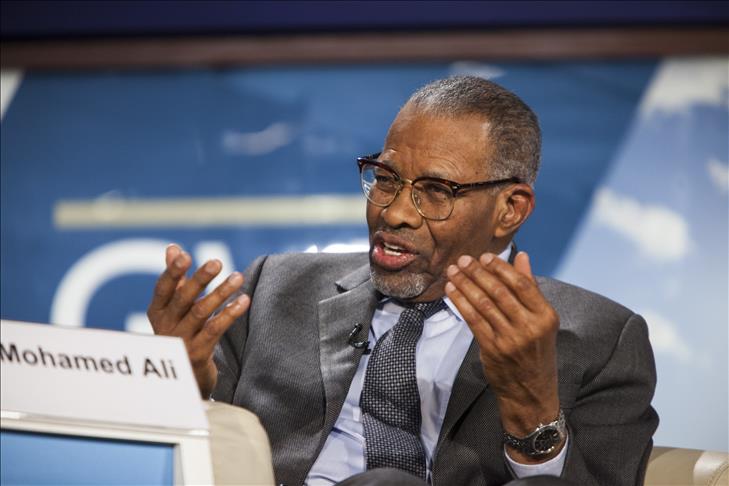
By Bahattin Gonultas
MAPUTO, Republic of Mozambique
Microfinance is a well-developed strategy to alleviate poverty around the world, Islamic Development Bank (IDB) President Ahmad Mohamed Ali said Monday.
Speaking at the forum of "Exploring Innovative Solutions for Affordable Islamic Microfinance on the sidelines of the 40th Annual meeting IDB, Ali emphasized that microfinance is a rapidly growing market, offering millions of disadvantaged people in Muslim and non-Muslim countries and beyond access to financial services that they could not otherwise obtain.
“The problem of poverty is complex, multi-dimensional, and at a high level. The eradication of poverty is the most serious development challenge facing mankind today,” Ali said.
"IDB provides more than $190 million for 35 microfinance project in mainly South Asia and East Asia," Ali said. IDB is also working to develop Islamic finance in its member countries including our African member States. The main objective is to open the way for Islamic microfinance for the benefit of the poor. There is great need for finding innovative solutions for poverty. IDB also provides technical assistance in order to support the establishment of Islamic microfinance," Ali added.
Ali said that a number of challenges confront efforts for microfinance by Islamic banks today. These include the need for coordinating policy and direction, weakness in regulatory and supervisory environments, lack of awareness and education about Islamic finance, and a severe shortage of qualified and trained human capital.
Ali said that IDB is implementing Islamic microfinance through establishing new institutions and strengthening existing institutions. "Last year, the bank focused on Sudan, Bangladesh, Indonesia and Senegal, In 2015, the bank is focusing on nations in southern Africa."
According to Ali, the development of standardized products for microfinance involves incorporating best practices to enable better supervision and implementation across the world, as well as the development of appropriate accounting and corporate governance standards.
Experts say that improving access to such services allows the poor to finance income-generating activities, to build assets, to stabilize consumption and to protect against risks. Such access is a powerful solution to alleviating poverty among the working poor. Islamic microfinance projects, depending on the country, are usually relatively small, ranging from as little as $100 to $10,000 in value.
Ali has called on the Republic of Mozambique to invest in establishing Islamic microfinance institutions in order to alleviate poverty and increase financial inclusion.
"Microfinance is specially important for us. Modernizing and diversifying the financial system drives the economic integration of the poor population," Ernesto Gove, the governor of the Central Bank of Mozambique, said at the forum. "Microfinance is an effective tool for poverty alleviation and has the capacity to provide access to financing in remote areas."
"Islamic microfinance is not important only for Muslim countries, It is also important for other countries which have a minority Muslim population," Gove added.
Anadolu Agency website contains only a portion of the news stories offered to subscribers in the AA News Broadcasting System (HAS), and in summarized form. Please contact us for subscription options.

